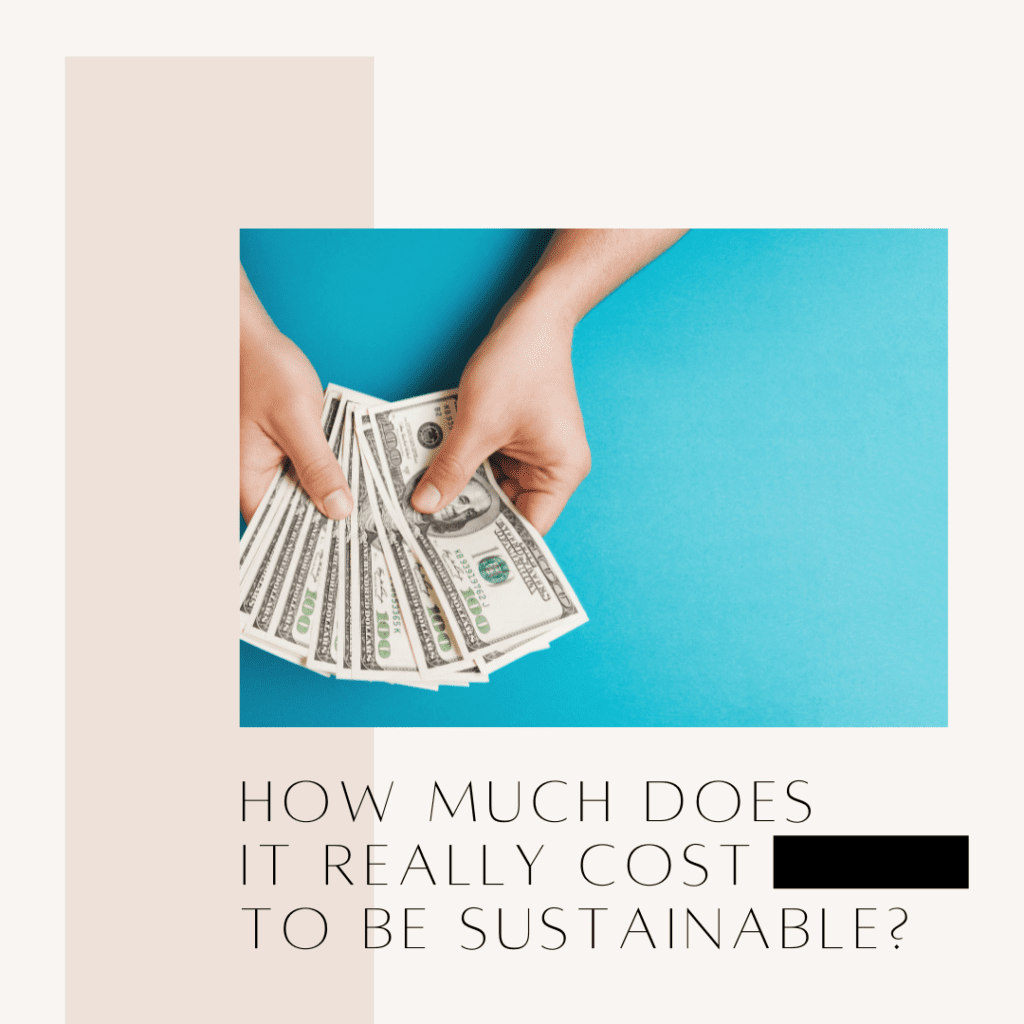The 21st century is best described as an era of uncertainty. We know that the future we want is at risk, and with the world’s current situation, it is every individual’s responsibility to fix the future. But how can we ‘fix the future’? Perhaps by making constructive changes in individual lifestyles. In recent years, the idea of thoughtfulness has evolved and gained more popularity than ever. From individuals to the government, everybody talks about sustaining the planet. But the question is, Can everybody on this planet afford sustainability? How much does it cost to be sustainable?
Well, sustainability is a simple yet complex concept. Depending upon the economic position and social strata, each person’s definition of sustainability is different from the other, but it surely has the same goal – a secure future. Creating an impact essentially requires effective changes, and people across the globe are rapidly adapting to the changes. Consumers, Producers, and Government are all making their efforts to impact and promote a conscious lifestyle positively. However, on a larger scale, people are still making choices that are harmful to people, the planet and the economy. So who is to be blamed for it?
If we compare the prices of a plastic toothbrush and a bamboo toothbrush online, our general psychology of saving money will make us buy the $1 toothbrush. Likewise, a $10 t-shirt from Walmart would make more sense to us rather than a t-shirt from a brand that will create a hole in our pockets. It’s not your fault! We all tend to behave like that. BUT, we are also aware of how humanity has impacted the planet. The entire phenomenon of convenience, of making goods and services readily available at a lower price, has created havoc. The recent IPCC Report is alarming, and thus, we surely cannot afford not to be sustainable.
Sustainable items are undeniably more expensive than the ‘standard cheaper alternatives.’ But these cheaper items are coming to the planet at a much higher price. Our convenience is costing us the planet. We simply need to consider our impacts beyond the price tags. Responsible products come at a high price because they carry values. The true cost of these products relates to a lower environmental footprint, ethical labour, consciously developed materials, accountable manufacturing, quality, and longevity – this is what you pay for. How could it possibly be cheaper? Well, nobody would force you to buy new sustainable products. Remember, the most sustainable choice is to use what you already have. Today, social media plays a vital role in influencing people, but it is all aesthetically pleasing lifestyles that are portrayed, and it cannot be the same for everybody.
Here’s how you can create a positive impact on the planet without setting your bank balance on fire:
- Most importantly, use what you already have.
- Know the difference between your needs and wants.
- Ditch convenience – cook your meals, mend your clothes, walk that extra mile to get milk instead of ordering it online.
- Take good care of your products.
- Limit yourself to buying new things. If possible, buy products responsibly.
Sustainable options save money in the long run. Just learn to differentiate your wants from needs, and you’ll be able to save more. Let’s throwback to olden times when goods and services weren’t that cheap and readily available. People used to shop less, reuse and repurpose more. This had a lower impact on the planet. A middle-class household in India can certainly not spend loads of money buying new things, but they find a way to reuse what they have without any fail. Below is an example of that.
A bird feeder repurposed from an old air cooler. Image Source: Shreya
The above example may not be aesthetically beautiful, but they are also not expensive. It’s easy to be sustainable if you want to. To sum up, sustainability isn’t expensive if we look beyond the price tags. To make a positive impact on the planet, you need to invest your time and effort, not necessarily the money!

